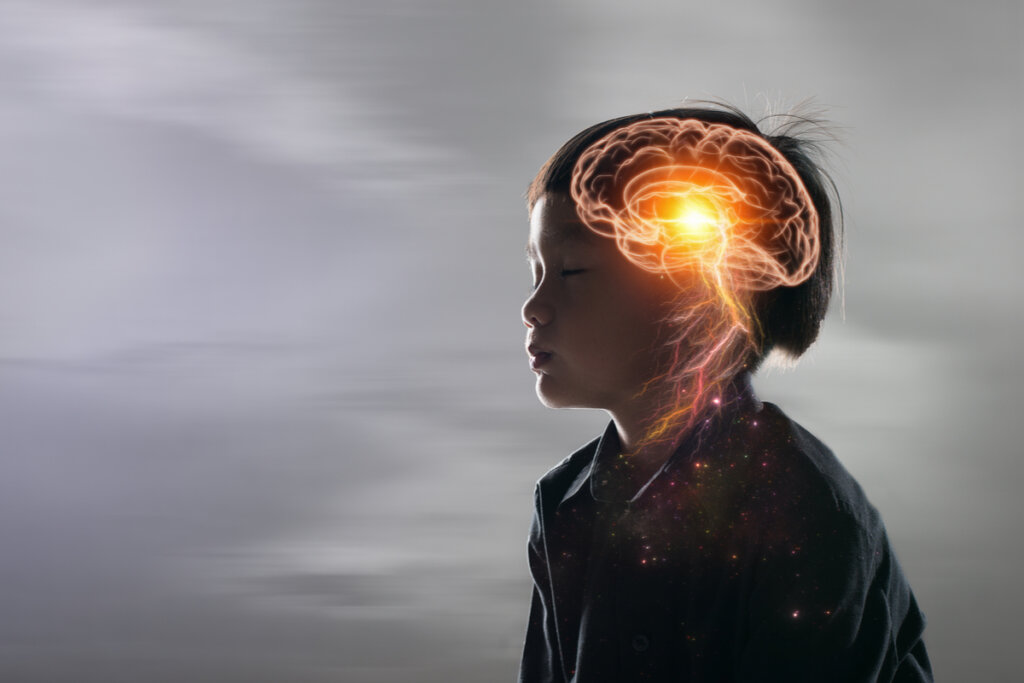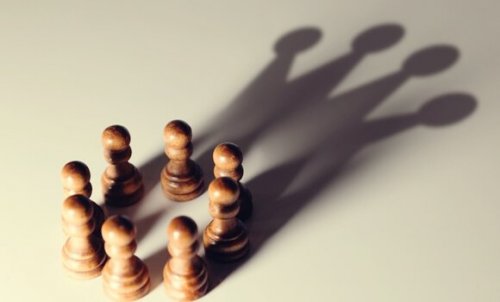Everyone has lost something at some point in their lives. Maybe you’ve left your sunglasses behind in a restaurant or a bag on the subway because of having to leave so quickly. In fact, forgetfulness is a part of being human. That said, there are few experiences that can be more upsetting and stressful.
It doesn’t matter that you can replace what you’ve lost. It’s irrelevant that you can simply buy a new cell phone or make a copy of your lost house keys. Indeed, it’s more than a simple annoyance. As a matter of fact, loss aversion defines an ancient kind of discomfort in us. It’s an instinct that’s accompanied by high concern and embarrassment.
Nobel laureate and psychologist, Daniel Kahneman, along with the mathematical and cognitive psychologist, Amos Tversky, investigated this experience. They claimed loss aversion is a cognitive bias that dominates a good part of our behaviors. It’s a completely unconscious mental schema that’s highly evident in areas such as economics and marketing. Let’s find out more.
The emotions we experience at the thought of losing something are the remnants of our own evolution as human beings.
The definition of loss aversion
Loss aversion is a cognitive bias that means we’re affected more deeply by losing than gaining something. For example, if you lose 50 dollars, the pain will be far more than the joy you experience if you win the same amount. This concept is part of the prospect theory, developed in 1979 by Kahneman and Tversky and published in a now renowned study.
As we mentioned earlier, this perspective explains many large-scale decisions that are made, especially in economic matters. One example occurs in the field of agriculture. Oxitec is a biotechnology company that develops genetically modified insects to improve public health. Its methods allow everything from eradicating diseases such as Zika to avoiding the use of insecticides.
However, even though many countries would greatly benefit from the use of this type of technology to prevent crop pests, traditional methods such as pesticides are still preferred. In fact, Europe rejects the modernization of its methods because it fears the economic investment it would entail. Even though, in the long term, the benefits would be considerable.
How can these kinds of realities be explained?
Losing something has always hurt
It’s often easy to forget that much of what we are is a product of our evolutionary past. Indeed, our instincts and response mechanisms are vestiges of the Pleistocene men and women who had only one goal in their day-to-day life: to survive.
However, how does loss aversion relate to those of our evolutionary echoes of yesterday? Actually, a great deal. As a matter of fact, losing something meant life or death for our ancestors. A lost weapon meant they were unable to hunt. Losing the trail of a bison or a mammoth meant they wouldn’t eat. Similarly, if they lost contact with their social group, they couldn’t survive.
Today, we no longer live in such harsh and threatening environments. Nevertheless, even in our modern world, loss aversion remains firmly ingrained in us by the imprint of our emotions. These are the same emotions that shaped us in past times. This neurobiological imprint explains why we’re more afraid of losing money than earning it or losing things that can be easily replaced.
Our brains suffer the psychological impact of losses more intensely than those of gains.
The neurological mechanisms of loss aversion
Economists are extremely familiar with loss aversion. The psychological pain that a monetary loss generates, for example, is more powerful than the joy that a profit can provoke. Stock markets are aware of this psychological bias. Consequently, they understand why any small event can cause people to stop investing their money, thus causing classic financial bubbles and panic to appear.
Both macroeconomics and microeconomics are conditioned by this mechanism as is any area of our lives. Any scenario or circumstance that involves some kind of risk intimidates us. Any experience that involves losing or leaving something behind is aversive. Even if, in the long term it brings benefits.
As we mentioned earlier, this process is due to the weight of our emotions. There are two brain regions that activate and promote loss aversion:
- The amygdala is the primitive area of the brain that processes fear. It activates states such as anxiety and alerts us to possible threats (real or irrational). For this structure, loss, in any of its forms, is a stimulus that arouses risk, fear, and dread.
- The striatum is key to procedural learning, reinforcement, and planning. It reminds us that it’s always better to keep what we already have than to make a profit.

Do we exaggerate our fears of loss?
Is it really negative to let ourselves be carried away by loss aversion? Economists will no doubt say that investments are necessary for markets to flow. However, when feelings of uncertainty appear, loss aversion paralyzes all stock trading and trading scenarios.
Therefore, occasionally, this almost natural instinct can cause a problem. On the other hand, if it’s allowed us to evolve as a species, it’s clear that it must have some advantage. In fact, it seems that protecting ourselves against losses, instead of focusing only on finding gains, has mediated our survival.
We’re all socially conditioned to fear any kind of loss. For instance, you don’t like to lose when you’re competing in a sport. You don’t like to miss the bus, lose your house keys, or even a friendship. Nevertheless, these emotions persist in you for a reason. Furthermore, as long as they don’t encroach on your life, and you continue to make rational use of the mechanism of aversion loss, it’s worth remembering why these kinds of emotions are there.
The post Loss Aversion: The Worst Nightmare for Your Brain appeared first on Exploring your mind.



















Comments